Despite only being in two episodes of Buffy and three of Angel, Anne Steele has a seven-year arc which embodies the themes of both series’ finales and showcases some of the best character development on either show. For the most part, Anne’s appearances are spaced out enough, her name changes frequent enough, and references to her past appearances subtle enough that casual viewers might not notice it’s the same character. Observant fans, however, are treated to a fantastic story unfolding in the background of the two shows, revolving around a character who’s as memorable as she is likeable.
Anne first appears in “Lie to Me” as a member of a vampire-worshipping cult, going by the name Chanterelle. She trusts that a group of vampires led by Spike will sire her and the rest of the cult, when in reality they’re simply planning to kill them. At first, Chanterelle appears to be a willing victim, naively throwing her life away. By the end of the episode, she’s learned not to trust vampires, but she’s still vulnerable to being manipulated. When she next appears, in “Anne,” a demon posing as a religious shelter worker named Ken is able to lure her into a hell dimension with false promises. It’s also revealed that before she was Chanterelle, she was following a “loser preacher” and calling herself Sister Sunshine.
In “Anne” we learn a little bit more about her background. She’s now going by Lily and living on the streets of LA with her boyfriend, Rickie. When Buffy asks what they call her at home, Lily looks away, clearly uncomfortable. Much of her story exists in the gaps between her appearances in Buffy and Angel, and we’re left to draw our own conclusions here too. It’s certainly implied that she didn’t have a good home life. Her passion in future episodes for helping teenage runaways and abuse victims further reinforces this assumption. It’s clear that she managed to get herself out of a bad situation, but at such a young age she likely hadn’t learned to be self-reliant. She should have been able to trust her family, but evidently couldn’t, so now she keeps trusting the wrong people, from cult leaders to vampires and demons.
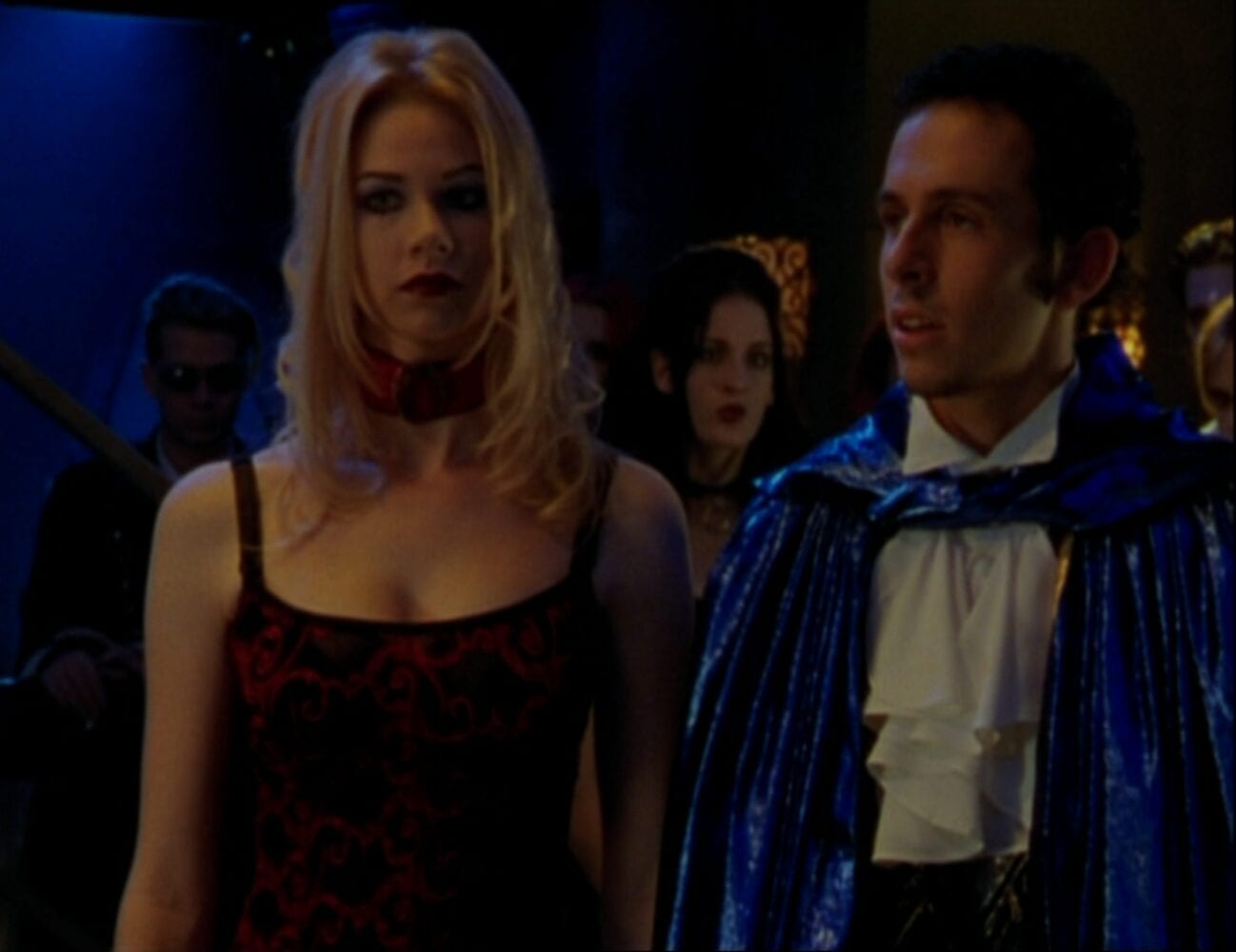
Much of “Lie to Me” deals with not knowing who to trust. Multiple characters in the episode also struggle with the instinct to turn to denial or fantasy when faced with harsh truths. Like Buffy asking Giles to lie to her, or Ford trying to escape his imminent death from cancer, Chanterelle wants to trust that vampires are just misunderstood and that cults have her best interests at heart, because she can’t deal with reality as she’s experienced it so far. A young runaway with no family she can turn to, she moves from one unhealthy situation to another, trying to find someone to take care of her and make the hard decisions that she can’t handle.
Lily’s pattern of being vulnerable to abuse continues in “Anne.” Rickie seems sweet and affectionate at first glance, but there are several hints that he’s very controlling. When they first encounter Buffy in the diner, Lily asks if they can get cake. Rickie responds, “Don’t be stupid. We gotta eat healthy. We can’t have cake,” then asks Buffy if they can get pie. The humour in his suggestion glosses over the fact that Rickie has just called Lily stupid, dismissed her idea, and is telling her what she can and can’t eat.
Lily worries that they shouldn’t have spent all their money on getting tattoos of each other’s names, but Rickie tells her it was worth it—clearly Rickie was much more enthusiastic about it than Lily, but she went along with the permanent decision anyway. Later, she tells Buffy that Rickie picked the name Lily for her. Bizarrely, this means the tattoo he got was actually of a name he chose for her, rather than a name she chose herself or was born with. It almost seems like Rickie is building a new identity for Lily from the ground up—one that she has very little say in.

When Rickie goes missing, Lily goes to Buffy for help, pointing out that Buffy “know[s] how to do stuff.” When Buffy refuses, it’s Lily’s desperate “But…I don’t know what to do” that convinces her. Lily struggles to function on her own, even for a day. When Buffy suggests they split up, Lily asks if she can go with her. Her initial reaction to hearing Rickie is dead is a disbelieving “But…he takes care of me.”
Throughout the episode, Buffy begins to inspire and empower Lily. When they split up, Buffy encourages Lily to search some of Rickie’s hangouts, just like she’s going to do. When they end up in a hell dimension, Buffy instructs Lily to get the other prisoners closer to the exit while she fights the guards. Lily is reluctant at first, but Buffy assures her she can handle it, and she does. When they get caught and Ken threatens Buffy, he takes his eyes off Lily for a moment, not expecting her to fight back. Lily pushes Ken off the platform they’re standing on, saving Buffy—a pivotal moment in her evolution.
Much of “Anne” focuses on identity. Lily reminds Buffy of who she is, helping her to gradually reclaim her identity as the Slayer and eventually return to Sunnydale. Meanwhile, Lily learns a lot from Buffy. In the end, Buffy sets Lily up with her former apartment and job, and Lily even asks to use the name Buffy was using in LA—Anne—as she takes her first steps towards independence and getting her life together. While Buffy’s help undoubtedly changes the course of Lily’s life, it’s also an early example of Buffy empowering another woman, foreshadowing her decision years later in “Chosen” to share her Slayer powers with the Potentials.
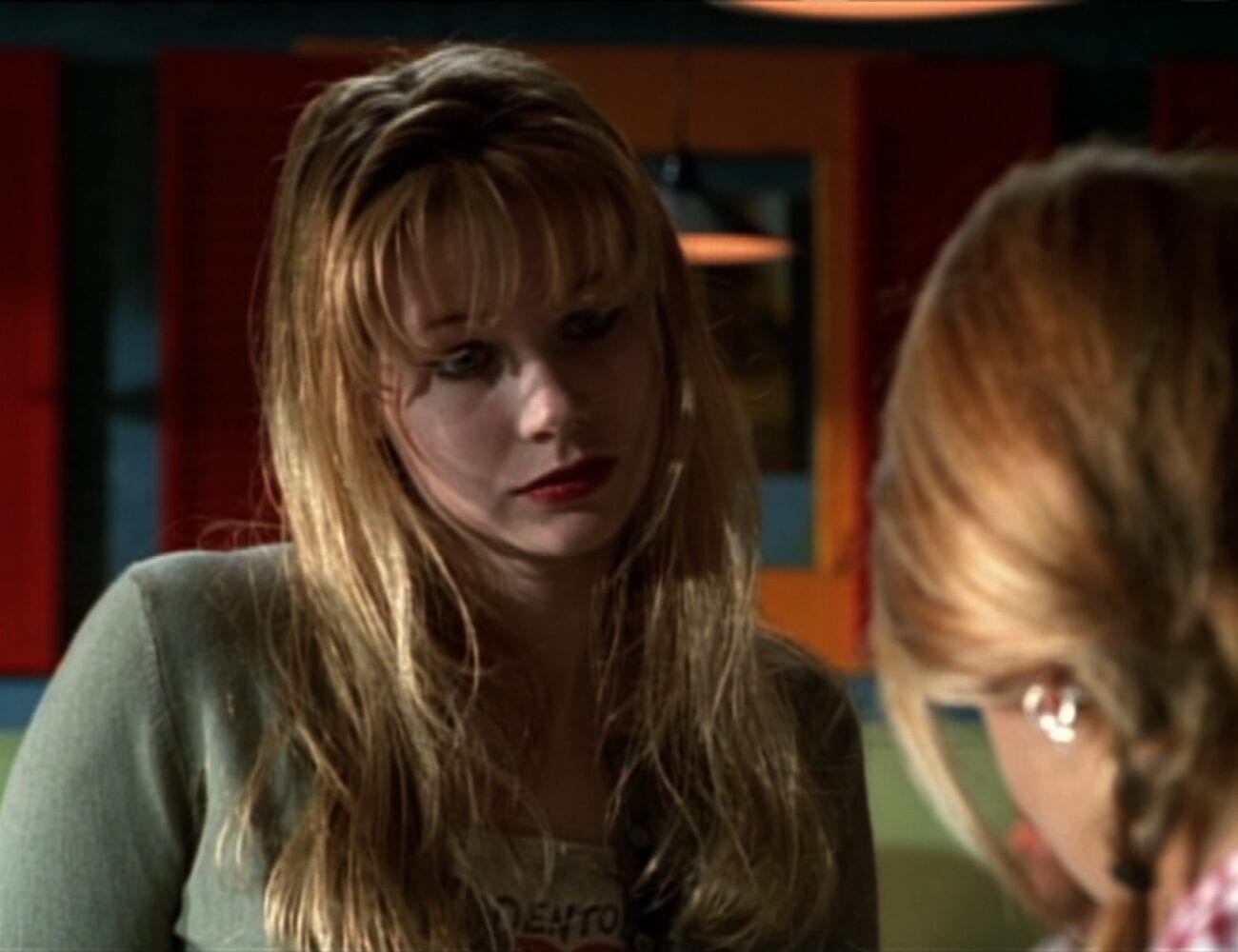
Here, however, it’s Buffy’s human identity and powers that she shares with Lily—not just her job, apartment, and name, but also her ability to trust herself, her compassion, her determination, her planning and organisational skills, and her willingness to fight for what’s right. These are all characteristics that Buffy demonstrates in “Anne,” and that Lily demonstrates in later episodes when she’s running her own shelter.
“Anne” also looks at the theme of workers being exploited, and explores the idea that people gain the power to fight back when they band together in unions or communities. Ken abducts homeless teens, cut off from their families, to use as workers in his hell dimension. Lily and the other new workers don’t resist at first, clearly feeling alone and powerless to do so. In the end, Buffy inspires them to join together to defeat Ken and escape. Buffy has rediscovered her identity as someone who understands the value of community—someone who is consistently helped in the fight against evil by her friends and family.
However, earlier in the episode, Buffy seems to have forgotten this. Living in LA, cut off from everyone she loves, she is determined to avoid connecting with anyone. When Lily blames Buffy for Rickie’s death, Buffy responds harshly: “I didn’t ask for you to come to me with your problems. I just wanted to be left alone. If you can’t deal then don’t lay it off on me.” Her words echo the conservative attitude that everyone should mind their own business, pull themselves up by their bootstraps, and never require help from anyone.
Lily, on the other hand, keeps reaching out to Buffy, reminding her that people should ask for help, and provide it when they can—and that being alone rarely leads to anything good. Buffy may be the one who motivates the workers to join together to fight Ken, but it’s Lily who persuades Buffy to engage with her community again in the first place. Lily may keep making mistakes, but she is always seeking out communities—even if they often turn out to be cults. By the end of the episode, Buffy has actually learned something from Lily, as well as the other way around.
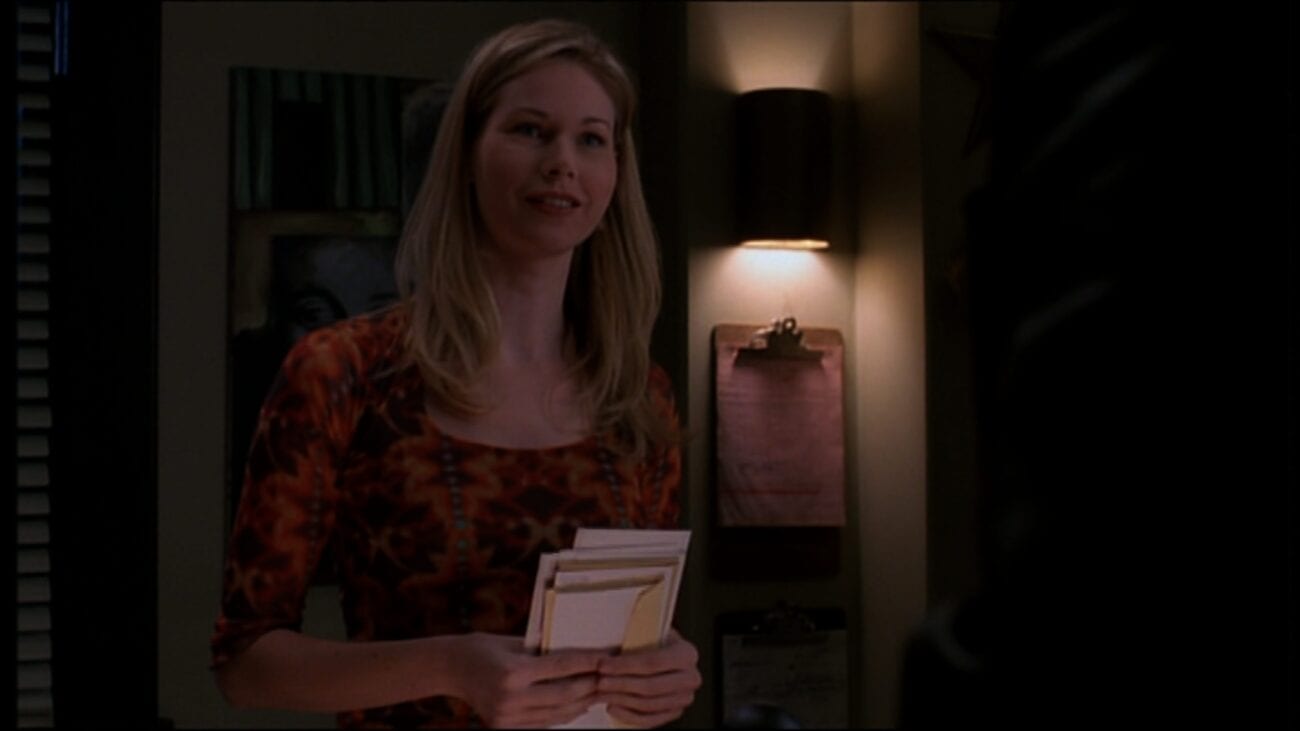
Lily next turns up in Season 2 of Angel, living as Anne, running a teen homeless shelter, and having become good friends with Gunn in the intervening years. She’s learned not only to take care of herself, but to take care of others too. Just as Buffy helped and empowered her, Anne helps and empowers the homeless teens she works with. She’s gotten more assertive, and in “Blood Money” she gives a pep talk to one of her workers about dealing with a particular regular. She asks Anne, “What am I supposed to do? He’s gonna want to come in.” Anne responds, “Then you tell him no. Benny knows the rules, he’s not coming in here drunk. You turn him out. Don’t even listen to him.”
In “The Thin Dead Line” Anne decides to let Kenny and Les in after curfew when she sees how scared they are, but she doesn’t let Kenny avoid her questions the next day about what’s really going on. Anne is organised and in control, always aware of what needs to be done as she assigns tasks to workers.
While Anne has made a lot of progress, both Lindsey and Angel are able to manipulate her in “Blood Money,” using her as a pawn to get what they want. It wouldn’t be realistic for her to completely change with no residual issues in just a couple of years, and it’s good that Angel shows that. Lindsey and Lilah are running a huge fundraiser for the shelter, but they’re planning to steal most of the money for Wolfram and Hart. Angel informs Anne about this, and despite Lindsey’s lawyer-style manoeuvring, she does eventually believe Angel.
Anne is still reluctant to risk the money the shelter would get from the fundraiser (even the 5% Wolfram and Hart plan to leave her with is a huge amount), but she agrees to do it to expose the evil law firm. However, Angel doesn’t have the proof of their scheme that he claims to, and his real plan is to get revenge on Lindsey and Lilah by humiliating them. He eventually gives Anne the entire two and a half million that was raised, but there was no guarantee he’d be able to do that. Angel disrespects Anne by persuading her to risk the future of her shelter based on a lie, rather than giving her all the information and allowing her to make an informed decision.
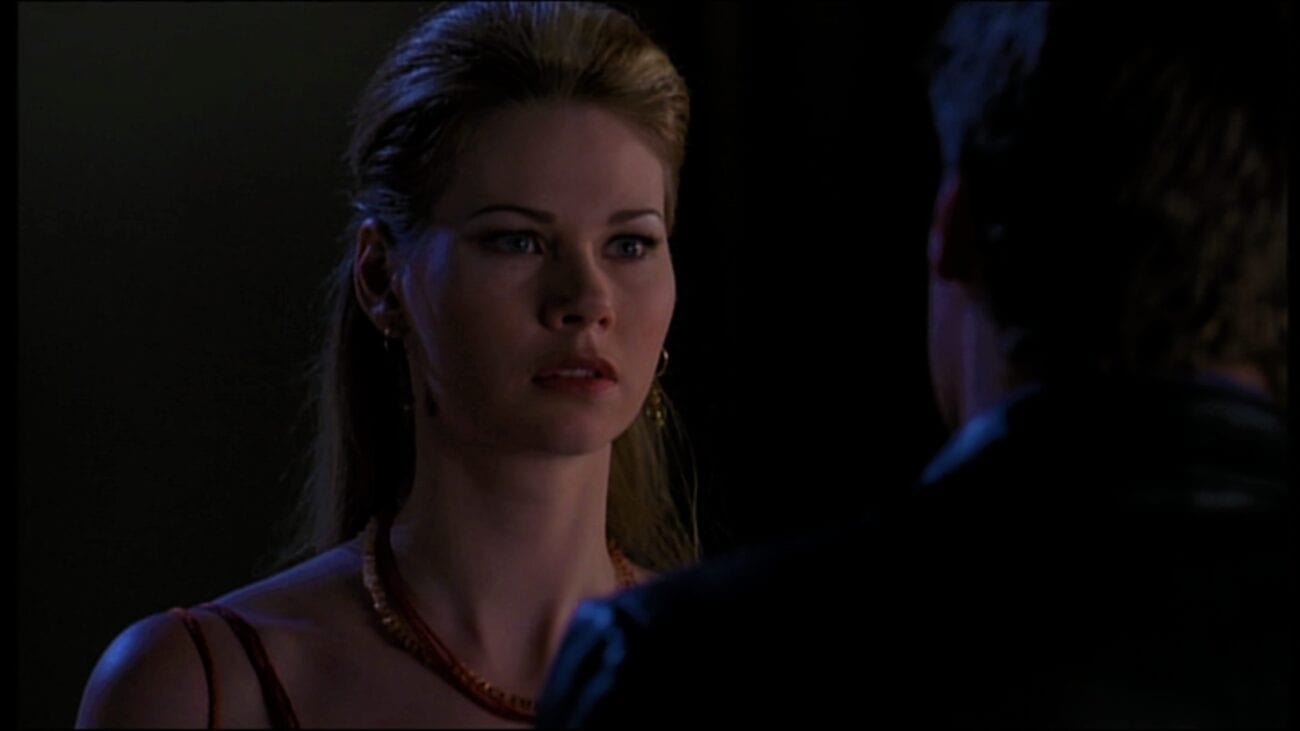
Anne does stand up for herself, slapping Angel and berating him for manipulating her. Angel claims Anne wouldn’t have wanted the money anyway because it’s tainted. She starts to explain that she doesn’t care about that, but Angel interrupts her to tell her that she does care, completely denying her agency and her knowledge of her own opinions.
Throughout “Blood Money,” the male characters’ ego-driven need to prove themselves and seek revenge is contrasted with the pragmatic attitude of the female characters. Angel’s desire for revenge leads him to stray further from his mission to do good, and shaking up Lindsey and Lilah is ultimately pointless, with no practical benefit for anyone. On the other hand, Anne’s willingness to overlook where the money is coming from and what Wolfram and Hart are doing allows her to provide a great deal of help for the vulnerable teens at her shelter, making a tangible difference in their lives.
“The Thin Dead Line” shows that Anne is still learning to trust herself, and that she doesn’t always have the best judgment. When she hears about the renegade cops, she’s unsure of what to do, so she goes to Gunn for help. Some things will always be beyond one person’s area of expertise, and in those cases, calling in a trusted friend is a good move. However, Anne doesn’t see any issues with Gunn’s plan to film the cops attacking him, whereas Wesley and Cordelia instantly note how bad a plan it is.
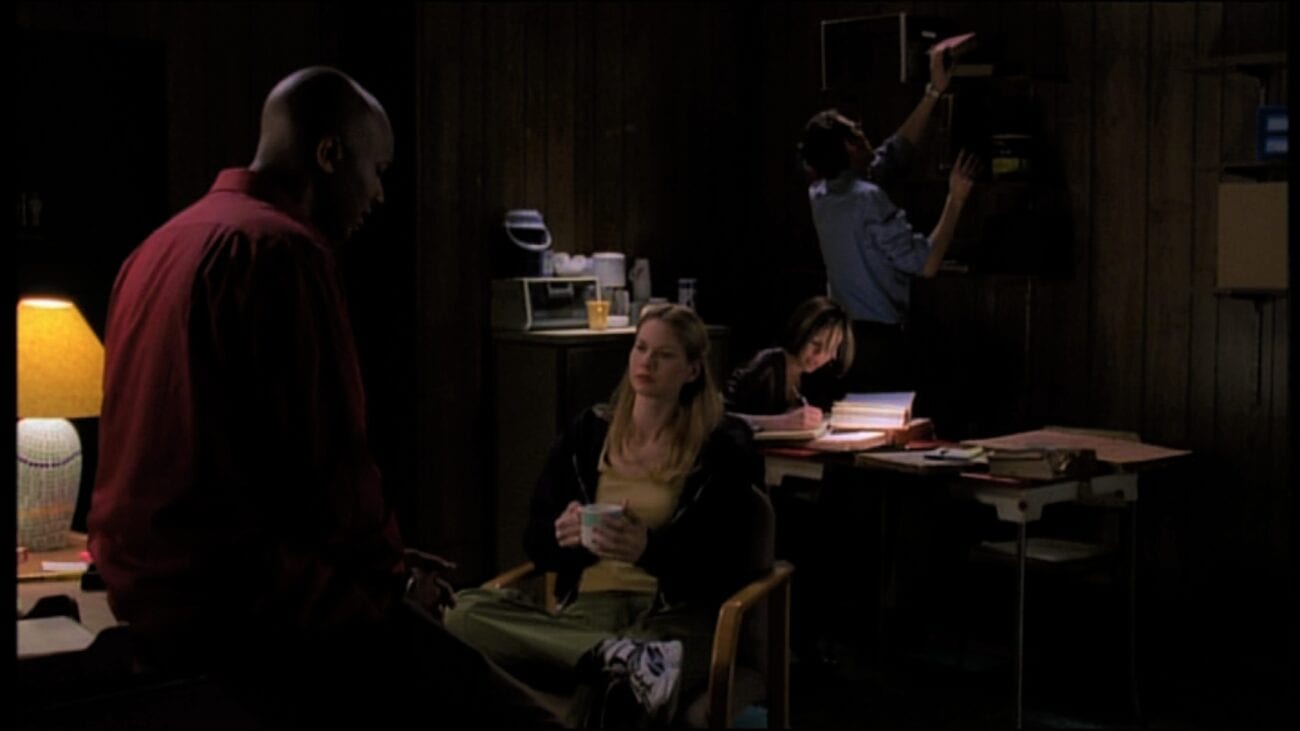
When the shelter is attacked by zombie cops, Anne lets Gunn take the lead. Again, this makes sense, since he has much more experience fighting demons. Anne uses her authority to back Gunn up, making sure everyone listens to his instructions, and together, they encourage everyone to do their part in protecting the shelter.
This reflects the fact that both Anne and Gunn understand the importance of equality in any community, and of working together to benefit everyone. Anne gives her all to her shelter, often working late and sleeping there. She lays down rules to make things fair for everyone, and her priority is bettering the lives of all the teens she works with. She clearly learned from her experiences with cult leaders and demons like Ken, who exploited others for their own benefit, and Gunn calls out Jackson, a drug dealer who’s only out for himself, for doing the same thing here.
We next see Anne in the Angel finale “Not Fade Away,” more than three years later. The shelter is flourishing, with a new location, a paid psychiatric staff, and a large donation of furniture. Anne is busy loading the old furniture onto trucks when Gunn shows up. He’s torn about going after the Circle of the Black Thorn, and he turns to Anne for advice: “What if I told you it doesn’t help? What would you do if you found out that none of it matters? That it’s all controlled by forces more powerful and uncaring than we can conceive, and they will never let it get better down here? What would you do?” Anne doesn’t even hesitate before replying: “I’d get this truck packed before the new stuff gets here.”
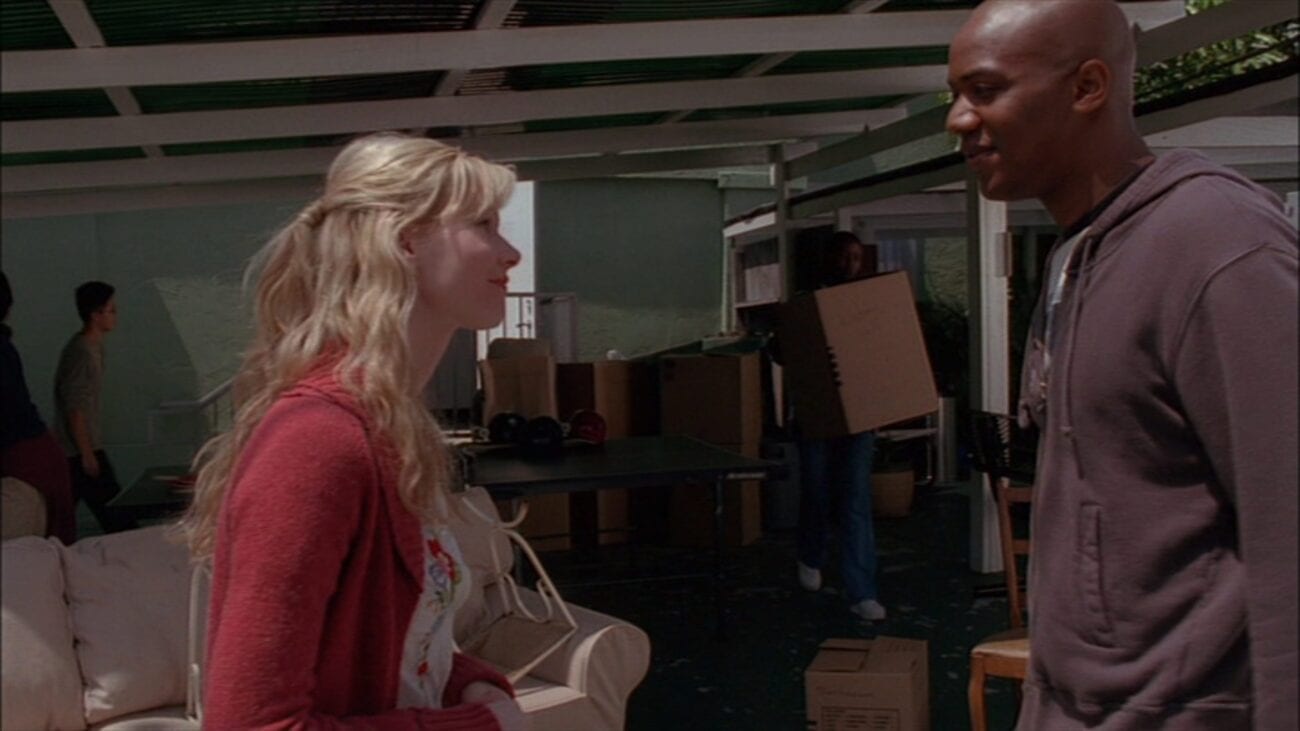
Anne’s response reminds Gunn of what’s important, and illustrates one of the major themes of the finale and the series as a whole: what matters isn’t winning against evil. What matters is simply doing what you can to fight against it. In “Blood Money,” Anne may have wavered in the face of the overwhelming evil and power of Wolfram and Hart, letting an ideological crisis temporarily distract her from her commitment to her shelter, but now even the Circle of the Black Thorn can’t make her doubt her mission. Her work with homeless teens might not save the world, but it makes a real difference to every teen she helps.
Anne is no longer susceptible to being manipulated by men like Ken, Rickie, and Angel, or even deferring to the authority and expertise of men like Gunn. Instead, it’s Gunn who comes to her for guidance, and she’s finally in a place to provide it. In her final scene on the show, Anne acts as a sort of spiritual counsel and mentor to Gunn, giving him—one of the show’s main male characters—her advice and wisdom. It’s a satisfying conclusion to one of the Buffyverse’s most moving and meaningful character journeys. Anne recognises her own power now, she knows how to use it to help and empower others, and no one can make her question it.

